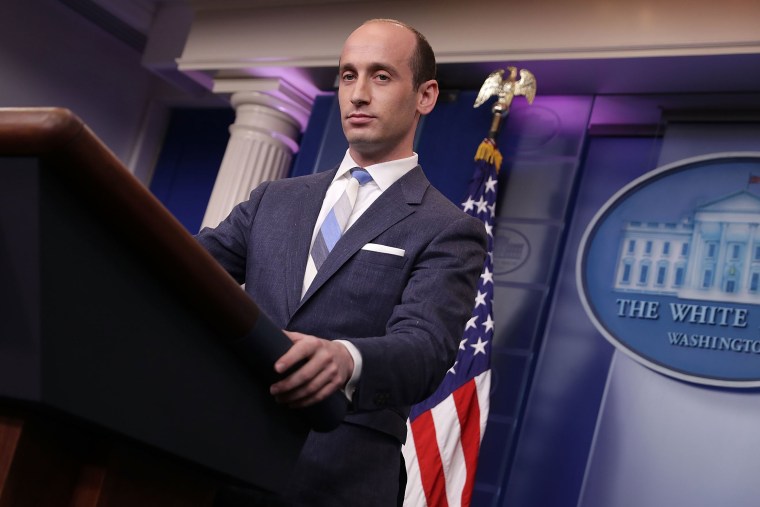White House senior adviser Stephen Miller — the Trump administration's leading voice on immigration — staunchly defended President Donald Trump's declaration of a national emergency to fund a larger border wall in a contentious interview with "Fox News Sunday" anchor Chris Wallace.
Miller said the action was justified by the authorities granted the president under the National Emergencies Act of 1976 and added that if such an emergency had been declared to support U.S. involvement in a foreign nation such as Syria or Belarus, it wouldn't cause any backlash.
Trump's policy advisor also strongly signaled that If Congress passes a resolution disapproving of the emergency declaration, the president would veto it. That would be the first veto of his administration.
"The president will protect his national emergency declaration, guaranteed," Miller said.
Wallace pressed Miller on statistics that showed illegal border crossings were down substantially from the turn of the century, that most drugs were seized at ports of entry, and that no similar national emergency had previously been declared under the 1976 law.
Miller dodged, however, when Wallace asked if he could point to "a single instance, even one" where a president asked Congress for funding, Congress did not give the appropriations, and a president then invoked national emergency powers.
Asked specifically about the dwindling number of undocumented immigrants apprehended at the U.S. southern border since 2000, which Wallace said were down about 75 percent since that year, Miller said former President George W. Bush's immigration policy was an "astonishing betrayal of the American people."
"I'm not going to sit here today and tell you that George Bush defended this country on the southern border because he did not," Miller said. "One of the biggest changes that happened since then and now is the mass release of illegal aliens due to a patchwork of court rulings and loopholes in our federal laws and changing tactics from smugglers and transnational organizations."
A representative for Bush did not immediately respond to a request for comment from NBC News.
On Friday, Trump ordered a national emergency to build a border wall that he could not get Congress to fund. The government is fresh off of a 35-day partial government shutdown — the longest in U.S. history — that began after lawmakers refused to provide Trump with $5.7 billion in funding to build that wall. The president shut down the government in response, but relented after more than a month, signing a stopgap spending bill.
The president on Friday also signed a bipartisan spending agreement that included more than $1.3 billion for 55 new miles of border fencing, in addition to more funding for other border security measures. But it did not provide him with funding for a wall.
Trump will divert nearly $7 billion from a combination military construction projects, counternarcotics programs, and a Treasury Department asset forfeiture fund to build barriers.
The national emergency has already drawn legal challenges, which Trump said expected in announcing the emergency on Friday. He also said he declared the emergency not out of necessity, but to build the wall more quickly.
"I could do the wall over a longer period of time," Trump said. "I didn’t need to do this. But I'd rather do it much faster."
On Sunday, Wallace asked Miller how building the wall could possibly be a national emergency if Trump said he "didn't need to" declare one.
"Like past presidents, he could choose to ignore this crisis, choose to ignore this emergency as others have," Miller said. "But that's not what he's going to do."
Miller said the president, if he is able to use the funds to build the wall, will have construction completed by September 2020.
"Right in the middle of the presidential campaign," Wallace noted.
In ending the interview, Wallace told Miller: "It's always good, and always challenging, to talk to you."

